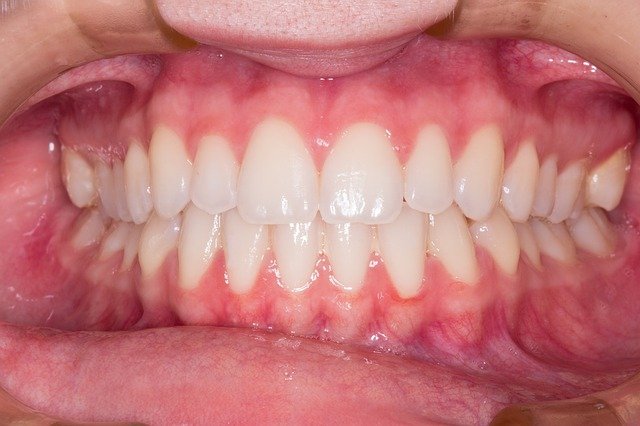Sometimes, Dr. Gibbs recommends tooth scaling and root planing. These are more commonly known as deep cleaning. Tooth scaling and root planing are procedures used to treat chronic gum disease or periodontal disease. They are more in-depth than basic teeth cleaning. Sometimes they take more than a single visit depending on how severe your case of gum disease is or if you have receding gums.
When is tooth scaling needed?
Routine exams are important for maintaining good oral health. During regular exams, your Glen Ellyn dentist will examine the health of your teeth and gums. Tooth scaling may be recommended if your mouth shows signs of gum disease. Tooth scaling and root planing can help keep your mouth healthy and stop the harmful effects of periodontal disease.
What causes periodontal disease?
The bacteria in plaque cause gums to pull away from the teeth and lead to periodontal disease. The result is the development of large pockets between the gums and your teeth. These pockets harbor more bacteria which cannot be reached by basic brushing. Flossing regularly is essential for reaching spots toothbrushes cannot get to. If periodontal disease is not addressed, it can lead to other problems like:
- Loss of bone and tissue
- Loss of one or more teeth
- Loose teeth
- Tooth movement
It is estimated that more than half of the adults in the US over 30 years of age are affected by periodontal disease. Some of the causes may include:
- Lack of proper dental hygiene
- Smoking
- Aging
- Hormonal changes
- Lack of good nutrition
- Family history
- Other types of medical conditions
What are the signs of gum disease?
You may be able to see the deep pockets that develop between your gums and teeth if you have chronic periodontal disease. Some of the other symptoms you might notice include:
- Bleeding gums
- Chronic bad breath
- Permanent teeth that shift around
- Changes in your bite
- Gums that are tender, swollen, or red
How does tooth scaling work?
When a dental professional at Gibbs dentistry identifies periodontal disease or an increased risk for developing gum disease, they will recommend improvements you can make to your daily oral care routine. If the condition has progressed too far or improved oral care isn’t enough, tooth scaling will be the next step.
There are two parts to tooth scaling. First, Dr. Gibbs will remove the plaque and tartar from above and below the gumline. He will clean all the way down to the bottom of the pockets that have formed. Then, root planing will be done. This procedure smooths out the roots so your gums can easily reattach to the teeth. Depending on the severity of the case, it may take more than one visit to complete the procedures.
What happens after tooth scaling and root planing?
After your periodontal treatment, your teeth may be more sensitive for as long as a week. Usually, the pain only lasts a day or two. You may notice swollen gums and they may be more tender and bleed a little. Your Glen Ellyn dentist may prescribe a mouth rinse to help control infection following tooth scaling and root planing. In some instances, Dr. Gibbs may insert special medications into the cleaned pocket to reduce the chances of infection. You will need a follow-up visit to ensure the gums are healing properly.
When to Call a Dentist in Glen Ellyn, IL
If you are experiencing any of the signs or symptoms of periodontal disease, call your Glen Ellyn dentist. Periodontitis is an infection, and it needs professional dental treatment to improve. Many times, periodontal disease and other dental problems are discovered during routine checkups. If you notice any problems with your gums or teeth, don’t wait until it’s time for your checkup. The earlier problems are identified and diagnosed the more likely treatment will be effective. Dr. Gibbs can assess your gums and teeth and determine if tooth scaling and root planing can improve your gum health. Don’t delay, call us today!



